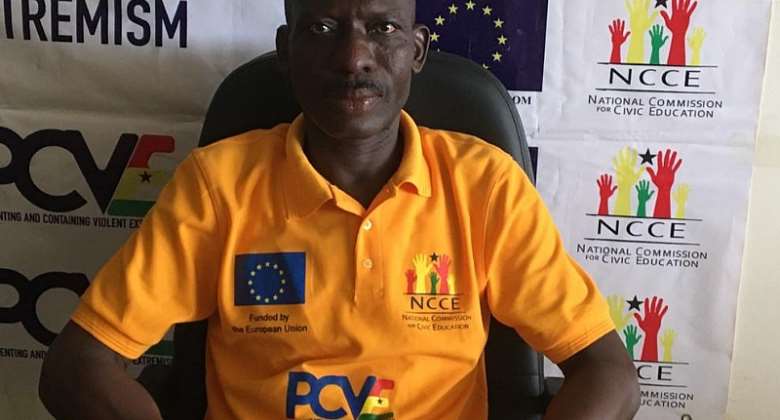The Tempane District branch of the National Commission for Civic Education NCCE has trained some selected fifty (50) youth both male and female on the prevention and containment of violent extremism.
Violence and radicalization among the youth have become a threat to national security.
Though anyone can become an extremist, young vulnerable people may be more susceptible to recruitment into violent extremist groups.
Religious convictions, political ideologies, and prejudices against specific ethnic groups might be the drivers.
Young individuals who are affected may not be aware of what is happening because medicalization is a gradual process.
This calls for the need for engagement that fosters a sense of unity, belonging, and patriotism among the youth to prevent violence and radicalization.
The 2021 study conducted by the NCCE under the NORPREVSE project identified the youth as most vulnerable to violent extremism. To deepen their understanding and involvement in fighting the menace, the youth formed a greater proportion of the respondent which was sampled for the 2023 baseline study on preventing and containing violent extremism (PCVE).
In light of the above, the NCCE undertakes engagement with youth groups as part of planned activities under the European Union (EU)) supported the PCVE project, on non-violence and radicalization in 75 operational Districts of the project.
A resource person from the Ghana Immigration Service Mr Erasmus Atse said harmful narratives, mis/disinformations, and hate speech can fuel violent extremism.
In playing a vital role in preventing and reducing the threat of terrorism, he noted that governments, civil society organisations, and media representatives must act quickly.
Mr. Martin Mumuni, Tempane District Director of NCCE said violent extremism is a threat to peace and tolerance.
"It is not enough to counter it, we must prevent it. Because no one is born a violent extremist, but they are made and fueled. Disarming the process of radicalization must begin with dialogue and respect for human rights and the rule of law," he stated.
Preventing violent extremism
A resource person from the Tempane Central Mosque Mallam Karim Salam commended European Union and NCCE for organizing such a program.
He added that civic education helps strengthen the commitment to non-violence and peace by tackling hateful and violent narratives.
Source: modernghana

_
Follow us on our social media pages for more stories and posts from the NCCE.
https://www.instagram.com/nccegh1/
https://www.facebook.com/nccegh/


Leave a comment